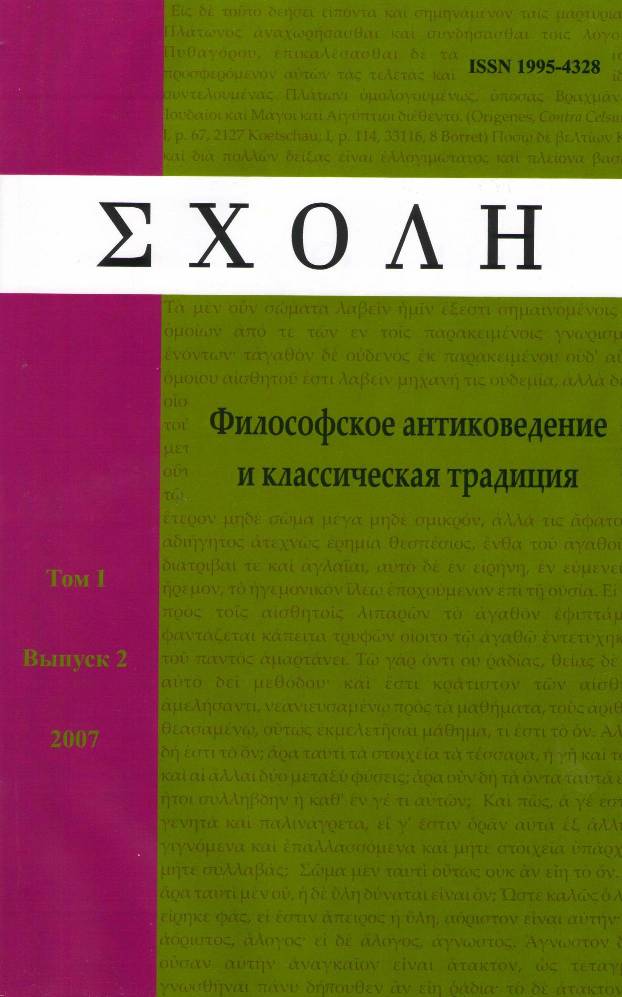On symbolon and synthema in the Platonic Theology of Proclus
On symbolon and synthema in the Platonic Theology of Proclus
Author(s): Dmitry KurdybayloSubject(s): Philosophy of Religion, Philosophy of Language, Ontology
Published by: Новосибирский государственный университет
Keywords: Proclus; Theologia platonica; Platonic Theology; Neoplatonism; symbol; synthēma; theurgy; ontology; myth;
Summary/Abstract: Many recent studies propose that symbolon and synthēma are synonymous in the writings of Proclus. However, his Platonic Theology contains reliable evidence to put this opinion to doubt. The goal of this research is to determine the meaning of both terms from the contexts of their usage, engaging the textual analysis and the following philosophical reconstruction. As distinguished from a symbol, a synthēma has substantial nature, is stable and remains invariable when is discovered at different levels of the ontological hierarchy. In the Platonic Theology, a symbol is often considered in terms of the hierarchic level, where it appears: in the material world, it is corporeal; among numbers, it is ontologically irrelevant, the intelligible realm contains its proper symbols as well. A significant difference between symbolon and synthēma is related to the dialectics of participation: synthēma in an object keeps it on an unparticipated level, while a symbol implies further participation to a symbolic object. Finally, a synthēma is described as “disseminated,” “planted,” or in any other way hidden in the being; while a symbol is “discovered,” or found in the being, therefore synthēma may be considered an inner kernel of what is discovered as a symbol, and a symbol – as an outward expression of a synthēma. Such understanding of these terms agrees with both exegetical and theurgic contexts in Proclus’ Platonic Theology.
Journal: ΣΧΟΛΗ. Философское антиковедение и классическая традиция
- Issue Year: XIII/2019
- Issue No: 2
- Page Range: 463-485
- Page Count: 23
- Language: English

